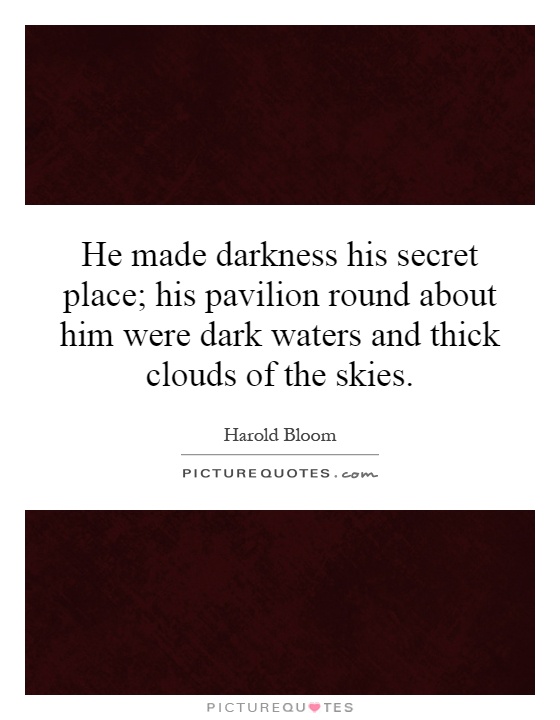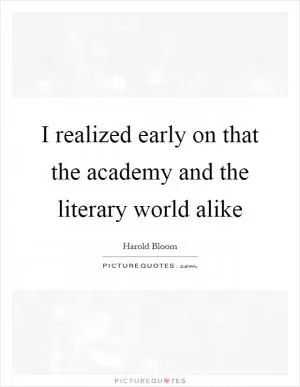He made darkness his secret place; his pavilion round about him were dark waters and thick clouds of the skies

He made darkness his secret place; his pavilion round about him were dark waters and thick clouds of the skies
In the context of literary critic Harold Bloom, the phrase "He made darkness his secret place; his pavilion round about him were dark waters and thick clouds of the skies" can be interpreted as a metaphor for the mysterious and enigmatic nature of the creative process. Bloom, known for his theories on the anxiety of influence and the concept of the "strong poet," often delves into the depths of the human psyche to uncover the hidden motivations and inspirations behind great works of literature.The idea of darkness as a secret place suggests that creativity often stems from the unknown and the subconscious mind. Just as an artist may retreat into solitude and introspection to find inspiration, so too does the poet or writer draw from the depths of their own psyche to create something truly original and profound. The dark waters and thick clouds surrounding the pavilion could symbolize the murky depths of the creative mind, where ideas and emotions swirl and coalesce into something tangible and meaningful.
Bloom's theories on the anxiety of influence also come into play here, as he argues that all writers are influenced by those who came before them, whether they are aware of it or not. The idea of darkness as a secret place could represent the hidden influence of past writers on the work of contemporary authors, lurking beneath the surface and shaping their creative output in subtle ways.
Furthermore, the image of darkness and clouds could also be seen as a reflection of the complexity and ambiguity of great literature. Just as a dark cloud can obscure the sun and cast shadows on the earth, so too can the layers of meaning and interpretation in a work of literature challenge and confound the reader. Bloom often grapples with the idea of the "anxiety of influence" in his criticism, exploring how writers both resist and embrace the influence of their predecessors in order to create something new and original.
Overall, the phrase "He made darkness his secret place; his pavilion round about him were dark waters and thick clouds of the skies" can be seen as a powerful and evocative metaphor for the mysterious and complex nature of the creative process, as well as the influence of past writers on contemporary literature. In the context of Harold Bloom's theories on the anxiety of influence and the strong poet, this image takes on new depth and significance, highlighting the hidden depths and complexities of great works of literature.












 Friendship Quotes
Friendship Quotes Love Quotes
Love Quotes Life Quotes
Life Quotes Funny Quotes
Funny Quotes Motivational Quotes
Motivational Quotes Inspirational Quotes
Inspirational Quotes